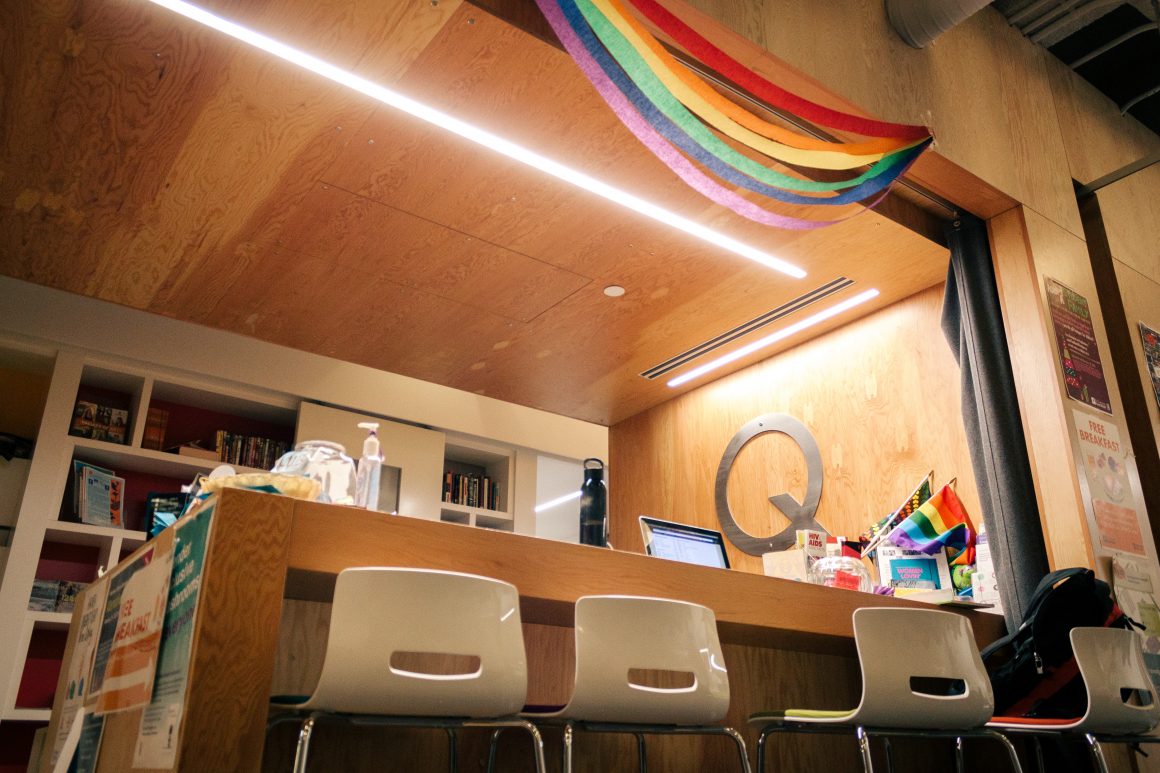
How to be a good ally: don’t let your voice ring louder than the ones you support
By Melanie Woods, November 29 2016 —
Along with any discussion of social justice movements comes the debate over how involved allies should be. When fighting for LGBTQ rights, how much should straight and cisgender people be involved? When protesting racism, what role do white people play? And when discussing sexism, where is there room for men?
The University of Calgary Students’ Union Q Centre will host a “How to be a good ally” panel on Nov. 30. The discussion will be centered around ways that straight and cisgender people can support their LGBTQ friends.
Allies usually mean well. They want to help social justice movements make progress. They want to stand up for marriage equality, Black Lives Matter or break down systemic sexism. But there is a fine line between being a good ally and drowning out the voices that really need to be heard.
An oft-cited example comes from the appropriation of the “A” in the extended LGBTQA acronym. It means asexual/aromantic. But some people interpret it to mean “ally.”
It doesn’t mean that and it shouldn’t. There is no history of exclusion, lack of visibility, oppression or danger related to being an ally. LGBTQ people have fought to be able to identify by those words. We have fought for ownership and pride over terms to name ourselves. Roping “ally” in there negates the work our LGBTQ predecessors had to do to even be allowed to have these words to describe ourselves.
The fine line between allyship and appropriation isn’t just related to the LGBTQ community.
In a Nov. 22 piece, Calgary Herald columnist Don Braid wrote about former Progressive Conservative party leadership candidate Sandra Jansen and the harassment she faced. While the sentiment was well-intentioned — abuse of female politicians is a recurring issue in Alberta politics — Braid’s final line is troubling.
“The wider society has to fight back. And men must be on the front lines.”
Braid is right. We do need to fight against sexism in politics. No one should argue with that. But Braid’s final comment represents the fundamental problem with saviour allyship, the idea that ally groups feel a responsibility to stand up for — and figuratively in front of — an oppressed group.
Support from allied groups is important. And if social justice movements want to accomplish anything, they often need the support.
But men are the not on the front lines. Men are not ones having sexist slurs thrown at them every time they open Twitter. Men are not the ones being told to stay in the kitchen or called a “lying bitch.”
Suggesting men be on the front lines implies that the work marginalized groups are doing isn’t good enough. Men should not be on the front lines of discussions about sexism in politics just the same way that straight allies should not be on the front lines of discussions about LGBTQ issues or white people should not be on the front lines of discussion about Black Lives Matter.
Keeping with Braid’s metaphor, men should be in the reserves. Women are on the front lines of the battle against sexism in politics. In this case, women like Jansen and premier Notley are the ones facing heavy artillery fire, just as LGBTQ folks are the ones facing generations of trauma, not straight and cisgender allies.
A good rule of thumb when you’re supporting a marginalized group is to speak up, but never let your voice ring out louder than those who are oppressed.
If you want to be a good ally, pause and critically examine your role in the issue at hand. You should not be on the front lines, but you can still help in other ways.
